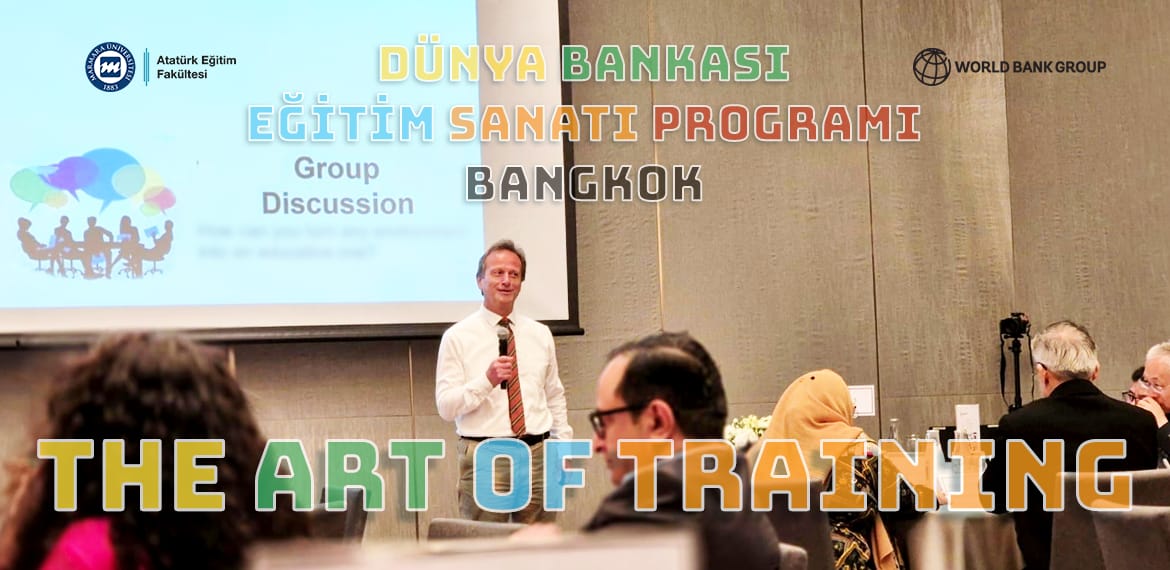
The World Bank's EFI-Governance-Public Finance and Procurement Unit organized a training workshop titled "The Art of Education" for its procurement staff. The training, conducted under the coordination of Prof. Dr. Seyfi Kenan, was delivered in person by faculty members from Marmara University’s Atatürk Faculty of Education—Prof. Dr. Seyfi Kenan, Prof. Dr. Feral Bekiroğlu, and Dr. Mustafa Polat—on 25–26 April 2024 in Thailand. Nearly thirty World Bank staff from various countries around the world participated in the event.
Emphasizing that education is both an art and a science, the workshop titled "The Art and Science of Training" began on the first day with a session titled "Education, Human and Culture." This session explored the nature of education as both a science and an art, focusing on cultural interactions. It provided participants with guidance on how to establish more effective communication with learners and how to transform any environment into a learning setting.
The second session of the first day, "Technology-enhanced Instructional Design and Training," emphasized the role of technology in education. It introduced participants to both theoretical and practical aspects of using digital tools to enrich the learning experience. The session aimed to support educators in integrating modern learning technologies into their teaching environments and to help learners succeed in evolving technological contexts.
On the second day, the workshop began with the session titled "Mastering the Art of Instructional Design and Training," which focused on helping educators improve their skills in creating instructional materials and developing teaching strategies. Participants gained fresh insights into making instructional techniques more effective.
The second session of the day, "Comprehensive Assessment Workshop," highlighted the importance of assessment processes. Participants received theoretical knowledge and engaged in practical exercises on accurately measuring learning outcomes and evaluating the achievement of learning objectives. This session aimed to equip educators with the tools to objectively analyze learner success and continuously improve their educational programs.
At the end of the workshop, participants were invited to share their feedback, which was overwhelmingly positive. They expressed that the training helped them understand education as both an art and a science, and provided them with new ideas for building deeper and more effective interactions with learners. The "Education, Human and Culture" session was particularly well received for its emphasis on the human factor in education and the importance of cultural diversity. The technology-focused session also generated significant interest, with participants expressing excitement about the potential of digital tools to enhance learning experiences and improve the effectiveness of the educational process. Finally, participants shared that the "Comprehensive Assessment Workshop" offered valuable new perspectives on evaluating learning outcomes and would contribute meaningfully to their own educational practices.
